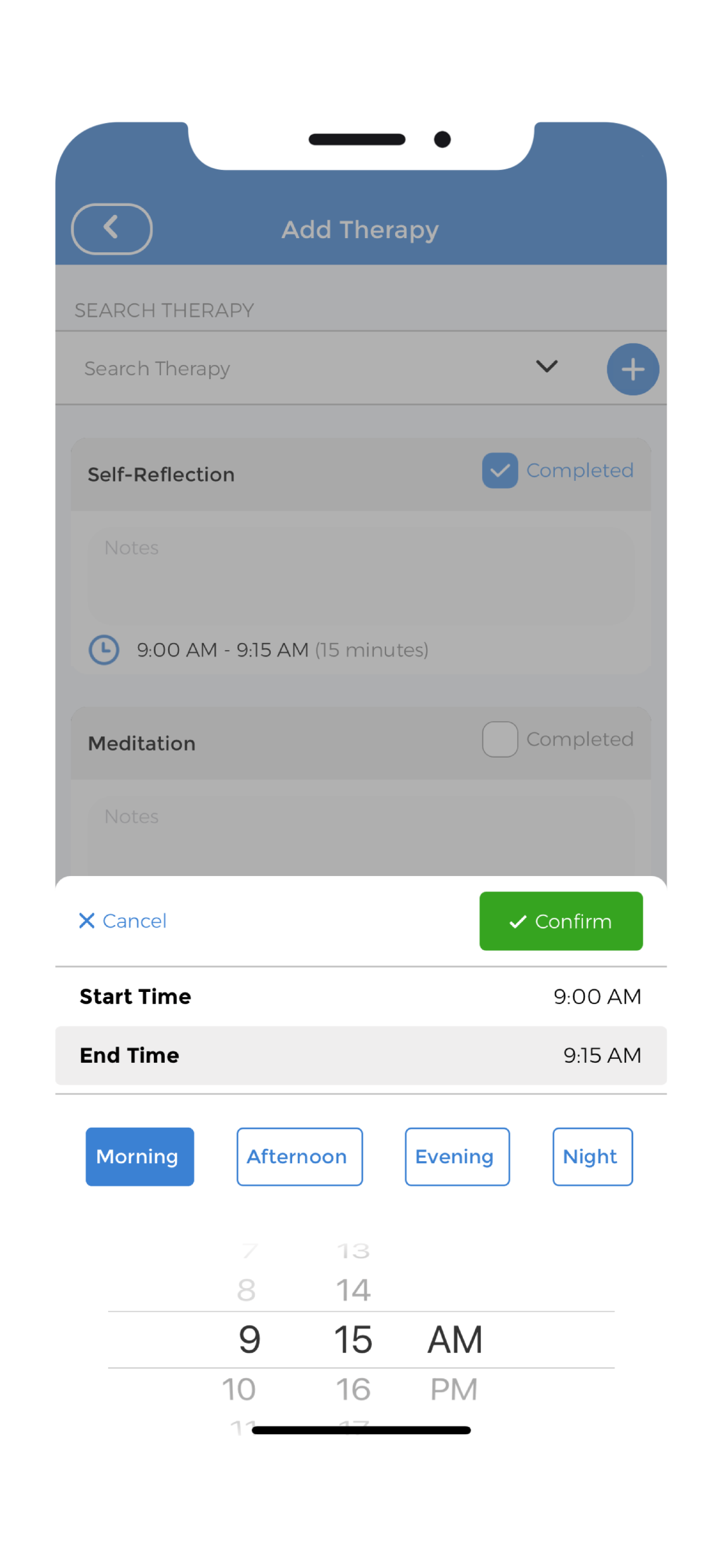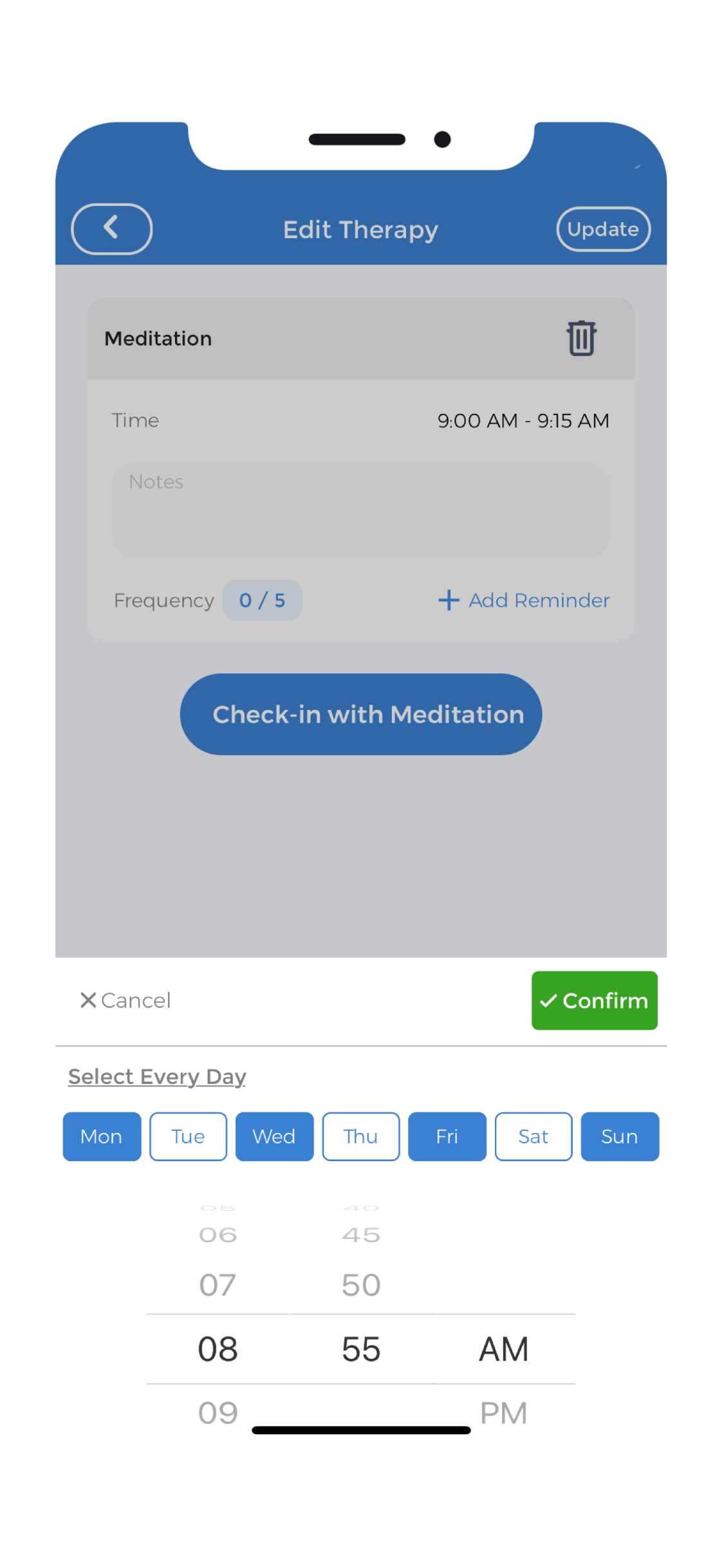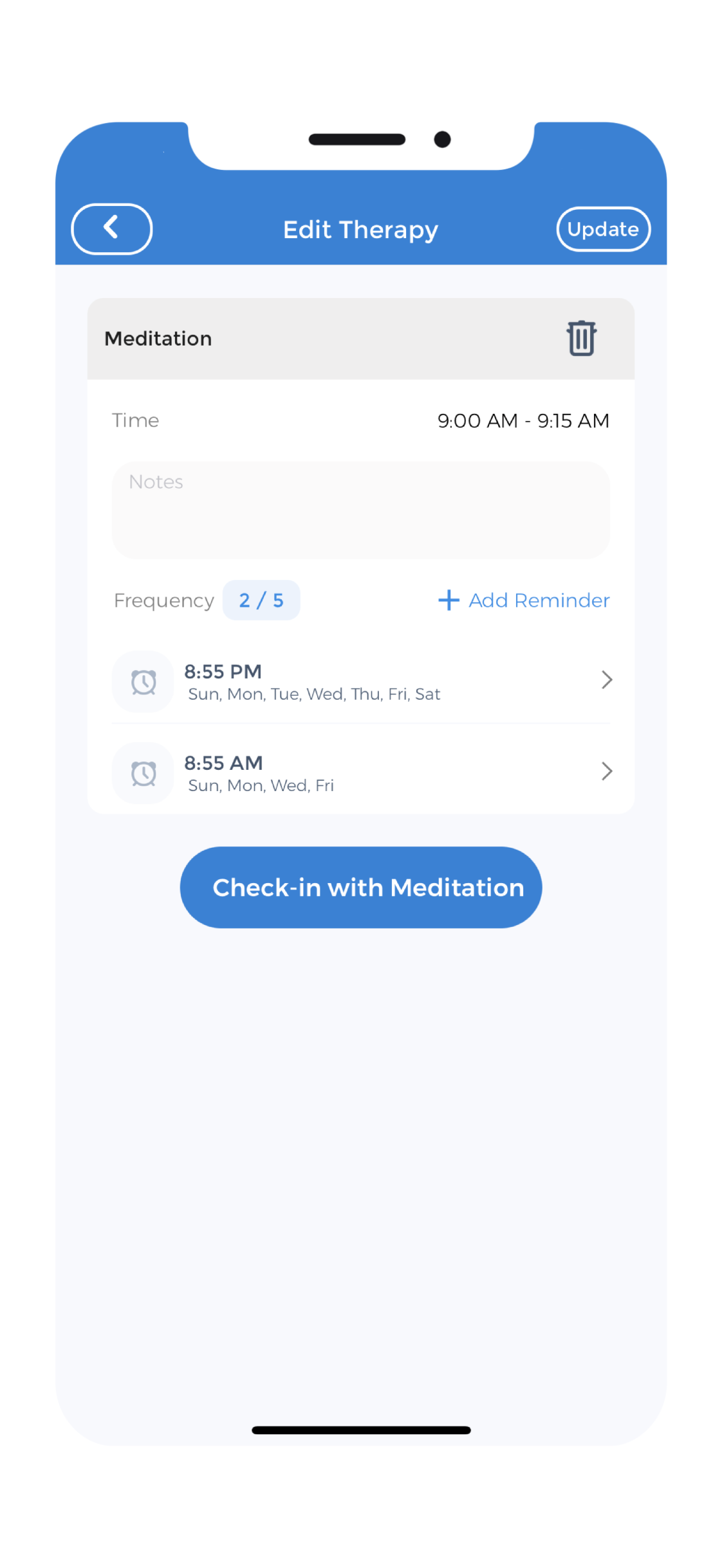
Reflective thinking is the process of examining and reviewing events and actions. Much like reflective thinking, introspection has a lot to do with analyzing your reactions and assessing the reasoning behind these thoughts and actions. When commuting home, or before going to sleep, you might find yourself replaying the events of the day. Thoughts such as, “why did I lose my temper at this minor mistake?”, “How could I forget about the deadline?”, “I should have said this instead of that”, are examples of questions that can end up disturbing us for some time. This is a type of self-reflection, and many times we are able to resolve our concerns.
However, there are circumstances where we fail to remember what we learned and circle back to behaving the same way again. It’s an endless loop that we have to proactively take measures towards ending. This is why it is important to incorporate this habit of daily reflections and introspection in our lives.
”You cannot have a meaningful life without having self-reflection.” —Oprah Winfrey
What does it do for you?
For starters it can help reduce anxiety and improve self-awareness. We are part of a culture that focuses on pleasing others, and sometimes we lose ourselves in the process. Aristotle has said, “Knowing yourself is the beginning of all wisdom.” Once you become more aware of your personal beliefs and morals, this will lead to having a firm conviction in the work we do, and the way we behave, making us more resilient in times of adverse circumstances.
If you don’t know who you are, or have a firm resolve on your thoughts and beliefs, it can sometimes impact our performance at work and overall health. We may feel less motivated to accomplish our goals or feel that it isn’t worth putting in the effort. We are no longer empowered enough to try and end up becoming disheartened. Research has found that through the simple act of daily reflection we can boost productivity, increase self-esteem and become self-motivated, thereby improving our mental health (R).
The science of it
We know that different parts of the brain are allocated for different functions. The largest part of the brain, called the cerebrum, is responsible for our thinking, reading, learning, speech, emotions and voluntary muscle movements, as well as other senses (R). The cerebrum is divided into two cerebral hemispheres, left and right, where the right hemisphere controls the left side of the body and the left hemisphere controls the right side of the body. The hemispheres are then subdivided into four lobes; the frontal, the parietal, the temporal and the occipital, where each lobe is responsible for control of a specific function. The frontal lobe is in charge of decision-making and reasoning, and as we age these parts of our brain start to lower our ability to react effectively in adverse situations.
So, what can we do to enhance our ability to adapt and react effectively? Reflective practice is one of the best ways we can identify, support and motivate ourselves throughout our lives.
Why should I reflect?
It gives us an opportunity to evaluate our choices and decisions to get insight into whether or not we are truly at ease with the things we have done and said. We can see the aspects of our lives that we can improve. We can identify the moments and work that make us feel happy and at peace. Just because we become aware of our shortcomings does not mean we should wallow away, but rather seek out solutions to make the best of our flaws. Nobody is perfect, as cliché as that sounds, but we should never let that come in the way of trying to build on our strengths. Sometimes we just have to laugh it off and keep trying. Even Pam Halpert, from NBC’s The Office, knows it too. “Pobody’s Nerfect”, it is a joke y’all, like she couldn’t even say the words right. Classic Pam.
A reflective practice can also help us become more self-aware and manage our behavior and social interactions. We are able to recognize where we end, and others begin. Keeping this separation in mind is crucial in order for us to identify our behavioral pattern. Once we are able to distinguish ourselves, and focus on our own unique traits and experiences, we are able to utilize this information to create genuine relations with the people around us. Creating strong and resilient thinking aids us in forming these happy and long-lasting relationships. An 80-year study conducted by Harvard on adult development found that personal relationships were the strongest indicator for a longer and meaningful life (R). Human beings are social creatures by nature. Even introverts require some interaction with other people to help keep their mind stimulated and active.
“Reflection… Looking back so the view looking forward is clearer.” – Unknown
Self-reflection is a practice that can help us to strengthen what we have learned and observed in situations, as well as help us to become resilient thinkers. Reflective thinking helps us to clearly define our resolve and make it easier for us to be proactive rather than reactive in tough situations. It helps develop control over our emotions, making it easier for us to grasp situations in a more effective manner.
If you find yourself stuck in a rut, or uneasy, engaging in a reflective practice will help you get the insight into why you may be feeling that way. It can help you overcome what it is that is causing you to feel that way, and help you overcome that. As a result, you develop a stronger mentality and motivation to help us work towards our goals.
Daily reflective thinking doesn’t just help us understand our behavior and reactions, it also helps us appreciate our success. In a digital age where you may be comparing yourself to a social media following, you may find yourself wishing you could live their life or have the same opportunities and success as them. One thing to keep in mind, social media only shows you what the person wants you to see, and no one ever wants to display their failures. So, take a moment to appreciate your efforts and the things you have succeeded in. Your accomplishments are no less than anyone else’s.
Alright, so we know that reflective thinking can improve our overall well-being as well as the relationships with ourselves and the people around us. So then why don’t more people engage in acts of self-reflection?
Why the hesitancy?
Reflective thinking is very helpful, but a lot of people don’t do it. The reason being is that they don’t understand the process. Some don’t like what they learn in the process and others feel the questions are too intense or irrelevant. What it comes down to is that we lack the understanding of how beneficial of a tool it is. When we fail to understand the true value of something, we turn to avoidance and are quick to disregard it.
A simple example would be math. Some people are excellent mathematicians, while others need to put in a bit more brain power to grasp the concepts. As a result, we may prolong the use of math, but if you look closely, the entire world is created through the use of math. Graphic design, social media, public infrastructure, air flights, and so on. All of this would not be possible without the incorporation of some type of mathematics.
Another reason we may avoid self-reflection, would be our fear of overthinking the littlest things, which may cause us to spiral into a cloud of despair. A lot of times this fear can also influence us to avoid facing the most significant and relevant questions. The important thing to keep in mind is that we should look at our actions and thoughts from a neutral standpoint. This may make it easier for us to analyze the facts that we may otherwise avoid and introspect on the reasoning, which would allow us to be more vigilant the next time we face an unfavorable situation.
How to start?
Alternative to the lack of understanding, we could simply be unsure of how or where to begin our self-contemplation. While we may be aware of what it is, we want to resolve or what we would like to work towards, we are looking for that extra push to guide us on our reflection practice.
First find a quiet space, free of distractions. While being in a silent environment may be unpleasant, it is practical in this setting. From that uneasiness emerges a feeling which encourages our mind to become alert. In turn it becomes easier for you to clearly set your intentions. It becomes easier to develop an effective thought process before you begin to contemplate.
“Silence is a source of great strength” – Lao Tzu
Keep it simple. Information overload is one of the reasons people avoid reflecting. The answer does not always have to be complicated, sometimes the simplest of questions help us find the right answers. In the Harvard Business Review article titled, Why You Should Make Time for Self-Reflection (Even if You Hate Doing It), the author outlines a few reflective questions to get you started. Oftentimes we ask ourselves too complex questions and try to find answers in a cloud of despair. If you find yourself veering off track, take a moment to step back and try to observe things from a neutral standpoint. It is easy to get lost, and one of the main reasons why people don’t reflect is because they find it hard and confusing. So, don’t push yourself over the edge. You want to be honest with yourself, but not be discouraged.
Another helpful tip would be to seek out how other people self-reflect. There are many different podcasts and books available on the market that can help you get started. Jay Shetty’s podcast On Purpose tackles many different perspectives and insights on topics that millions go through on the daily. You will find that while the experiences differ slightly, you will be surprised at how many other people are struggling with the same thoughts and concerns as you. Sometimes even speaking with a trusted friend, family member or co-worker could be a source of reflective thinking.
Set reminders
As they say, practice makes perfect, so set a time. 5 minutes, 10 minutes, 15 minutes. You decide on how much time you would like to spend on your self-reflection practices. The CareClinic app lets you set a daily reminder, to take some time out of your day to self-contemplate. Just as it is important to take your medication on time, complete deadlines accordingly and exercise for your physical health, reflective thinking is just as important to help you be motivated and resilient in any aspect of your life.
Whether you want to do a daily, weekly or even monthly reflection, you can customize the frequency of your reminder as well. Whether you want to reflect between meetings or classes, or at the beginning your day, tailor the reminder to what it is you want to resolve and work towards so that you can become successful in maintaining this habit.



Types of reflection
Try to add in questions or topics you would like to reflect on in the notes section of the reminder. There is no need for complicated questions. A simple question is all that you need to get started. Another tip would be to choose relevant questions. Based on what you want to achieve and accomplish, your questioning should be reflective of that in order to make your time most effective. Some examples of
questions you can use include:
- What matters most to me?
- If I do this today, will it make me a better version of myself tomorrow?
- What activities bring me the most enjoyment?
- Are there activities that bring me the most suffering?
- What battles have I overcome?
- Will I face any challenges?
- What did this session teach me?
- Can I contribute more or less to this project/relationship?
- Does this make me happy or sad?
- Is the end goal worth my efforts? How can I make it so it is?
There are many ways you can self-reflect. You could do it sitting on your bed, while going for a walk, maybe writing it down in a journal. It can be done anytime of the day, and as often as you would like. The most important part of self-reflection is finding what works best for you and sticking to that routine. A lot of influential people carve time out of their day to practice self-reflection. This helps them to be more successful and happier in the work they do.
Reflection for all
In Michelle Obama’s memoir, “Becoming”, she always reflected on the question, “am I good enough?” as her motivator to improve her work ethic. This was her reflective question throughout her life. Through this she found that it helped her filter out a lot of doubts and gain clarity. LinkedIn’s CEO Jeff Weiner schedules blank slots between meetings to help him reflect back on and process what was said. He finds that it helps him become more self-aware and connected to his work. Steve Jobs said in a commencement speech at Stanford in 2005 that every morning for 33 years he would ask himself, “If today were the last day of my life, would I want to do what I am about to do?” and plan his day according to his answer. In this way he would make time to ensure he was doing things that were meaningful to him.
Conclusion
Reflect in the mornings, afternoon, evening, whenever or however you like. It is a great habit to keep, and you’ll be quite surprised at how at ease you will feel doing it.
Like any good habit, it is hard to keep in the beginning, but once you make it a routine the effects are everlasting and pleasant. If you find it hard to focus, keep trying. As you gain knowledge and insight, you will certainly develop a strong focus.
Reflective thinking is something that can help us in self-growth. It is a versatile tool that can be applied to our professional and personal development. This type of self-contemplation can help us maintain our overall health and help us achieve the skills needed to fulfill our goals. It also helps us strengthen our resolve and live a resilient and meaningful life.
Whether you are planning out your education, career or even personal relationships, taking a moment to reflect on our actions and thoughts clears up any doubts or confusion we may have. It can also help us make better decisions and keep a proactive mindset. There are many influential people in the world see the value and power of reflective thinking. They actively find ways to include it in their daily schedule. Reflective thinking is a skill needed in order to be successful in every aspect of your life.


